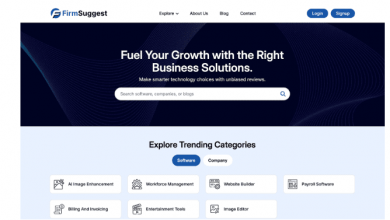College Degree Careers in 2025: Fields Where Higher Education Still Matters

Every year, many people—whether just finishing high school or considering a career change—ask: what jobs require a college degree in 2025? This is a reasonable and important question because the job market is shifting, but not all industries are changing at the same pace. Nakase Law Firm Inc. often reminds clients that knowing what jobs require a college degree is an important part of making smart choices about education and work. The rise of skills-based hiring and online certifications has opened new doors, yet many occupations still rely on formal education. To help you get a clearer picture, here’s a look at some key fields where a degree isn’t just helpful—it’s often needed.
Healthcare and Medical Fields
Healthcare is one of the clearest examples where a college degree is required. Roles like doctors, surgeons, registered nurses, nurse practitioners, pharmacists, physical therapists, and physician assistants all demand years of study and practical training. These jobs involve caring for people’s health and need both solid knowledge and hands-on experience. Even administrative roles, such as healthcare administrators or health services managers, usually require at least a bachelor’s degree. If you’re wondering, do you need a college degree for management or compliance roles in healthcare, California Business Lawyer & Corporate Lawyer Inc. points out that the answer is almost always yes, especially when dealing with patient care rules and legal standards.
Legal Professions and Law Enforcement
To become a lawyer, you need a bachelor’s degree followed by law school to earn a JD (Juris Doctor). Judges and magistrates must also have legal education backgrounds, which include years of practice. Even paralegals and legal assistants are now often expected to have an associate or bachelor’s degree in paralegal studies or related fields.
In law enforcement, while some starting roles may not require a degree, moving into positions like detectives, FBI agents, or specialized federal roles often does. Degrees in criminal justice, law, or forensic science are frequently preferred or required, especially for those aiming for leadership or investigative work.
Education and Academic Careers
Teachers at public schools need at least a bachelor’s degree, along with the right state credentials. Many states also require or encourage master’s degrees for teachers who want to stay in the profession long-term or take on leadership responsibilities.
At colleges and universities, the expectations are even higher. Faculty usually need master’s or doctoral degrees, depending on the subject. Education administrators, like principals or academic deans, typically hold advanced degrees as well, reflecting the mix of subject knowledge and leadership skills needed for these positions.
Engineering and Architecture
In engineering—whether civil, mechanical, electrical, or software—a college degree is typically non-negotiable. Most positions require at least a bachelor’s degree, and in some cases, a master’s or professional certification like the PE (Professional Engineer) is needed to move into senior roles.
Architecture follows a similar path. To become a licensed architect, you must complete a professional degree, undergo internships, and pass the Architect Registration Examination (ARE). These steps help ensure that those designing public spaces and buildings are prepared for the responsibility.
Finance and Accounting
While a few finance roles now welcome nontraditional candidates, most still require formal degrees. Accountants, financial analysts, actuaries, and auditors typically need at least a bachelor’s degree in accounting, finance, or related fields.
To become a Certified Public Accountant (CPA), you need to meet credit hour requirements, hold a degree, and pass a tough set of exams. Investment firms and financial management positions also frequently look for degrees and certifications like the CFA (Chartered Financial Analyst).
Science, Technology, Engineering, and Math (STEM)
Scientific research, biotechnology, pharmaceuticals, and data science are all areas where a degree is usually a must. Entry-level positions in laboratories, research centers, and tech companies often call for a bachelor’s degree, while more advanced or leadership roles may require a master’s or doctorate.
Although some areas of technology, like coding or web development, now accept bootcamp graduates or self-taught workers, other tech roles—particularly those related to research, engineering, or highly regulated sectors—still place heavy value on formal education.
Government and Public Sector Jobs
Many roles in government, especially at state and federal levels, expect applicants to have a college degree. This applies to positions in public policy, international relations, urban planning, and public health administration.
Higher-level roles often look for advanced degrees such as an MPA (Master of Public Administration), showing that a candidate has both public service knowledge and management ability.
Marketing, Media, and Communications
In creative fields, there’s been a shift toward valuing portfolios and work experience, but formal education still matters for many corporate roles. Marketing managers, PR directors, media executives, and brand strategists are often expected to have degrees in marketing, communications, or journalism.
This is especially true when companies are looking for people with formal training in areas like analytics, brand strategy, and team leadership, along with creative talent.
Sustainability and Environmental Careers
With global focus on environmental concerns, jobs in renewable energy, environmental engineering, and sustainability management are expanding. These positions typically require degrees in environmental science, engineering, or sustainability studies.
They also demand a strong understanding of regulations and scientific principles, making formal education an important part of qualifying for these careers.
Psychology and Social Work
If you’re considering work as a clinical psychologist, counselor, or social worker, you’ll need at least a master’s degree, and sometimes a doctorate, depending on the specialty.
These roles call for academic preparation, supervised practice, and state licensing. This ensures that those working with vulnerable individuals or groups are equipped to provide the right care and support.
Why Degrees Continue to Hold Value in 2025
There has been talk about companies loosening degree requirements, but the truth is more layered. A college degree still offers more than technical knowledge: it helps develop problem-solving, communication, and reasoning abilities that employers appreciate.
For jobs tied to public safety, legal rules, and scientific work, the degree is not just about formal recognition—it’s a needed qualification.
At the same time, some industries like tech, media, and design are offering more flexible ways to break in, where proven skill can sometimes take the place of formal education. Still, for regulated or specialized roles, formal study remains important.
Final Thoughts on Choosing Your Educational Path
If you’re wondering what jobs require a college degree in 2025, it helps to look at both current practices and where industries are headed. Skipping college may be an option in some fields, but it can close off opportunities in others, particularly when it comes to long-term growth and professional standing.
For anyone planning the next step, it’s wise to think carefully about long-term goals. Consider potential earnings, job security, advancement chances, licensing needs, and the nature of the work. Matching your education plans to where you want to be can help you invest your time and energy well, setting you up for meaningful and rewarding work.

Source: College Degree Careers in 2025: Fields Where Higher Education Still Matters



